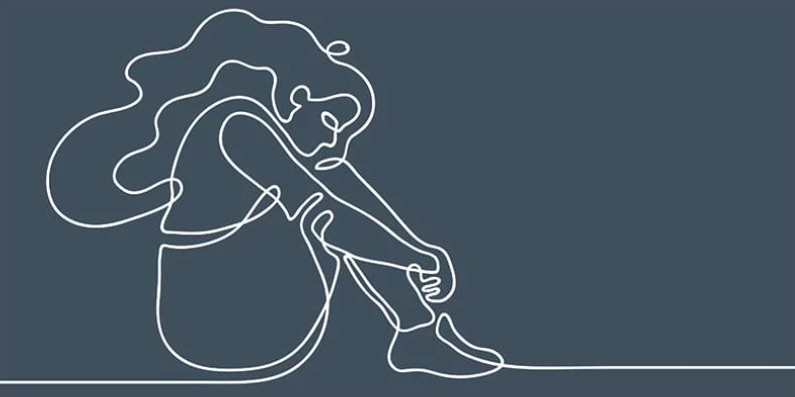
By Charanjit Kaur | Opinion |
In an era that increasingly emphasizes individual autonomy and decision-making, we encounter instances where choices made can have an impact on humanity or the lives of others. Within the realm of familial relationships, the growing trend of separation from a partner is becoming more prevalent. However, the writer’s focus lies in a particular issue where the role of a father is not necessarily confined to the male gender.
While many families celebrate Father’s Day by honoring the biological father, whether present or deceased, the writer wishes to delve into the significance of discussing the role of a father that transcends gender or biological ties, considering the possibility that this trend of redefining fatherhood may persist in the coming decades.
Despite the Guru Granth Sahib drawing upon contemporary cultural references in its composition as a spiritual book, it does not advocate for the rigid confinement of the role of fatherhood to a specific gender. Instead, the Guru Granth Sahib emphasizes the importance of gender equality and denounces cultural norms that undermine any gender, particularly women. Numerous scholarly works have discussed the equal rights of women within gurdwaras and family structures. However, it is now crucial to acknowledge the significant contributions of single mothers who courageously strive to support and sustain their families.
The status of being a single mother can arise from three different situations: the death of a husband, divorce, or having children without being married. This piece specifically focuses on the aspect of divorce. By exclusively engaging in social interactions within the gurdwara institution, the writer readily encounters numerous single mothers. Remarkably, these single mothers exhibit strong determination and excel in fulfilling the role of both mother and father.
Although society often associates mothers with nurturing responsibilities, single mothers adeptly take on additional roles traditionally attributed to fathers, such as providing for the family financially, making important decisions, and upholding their independence. In fact, many of these divorced women display a heightened dedication to the well-being of their families and efficiently manage all household matters. Equipped with a solid education, a significant portion of these single mothers choose to remain single and wholeheartedly devote themselves to the welfare of their beloved children.
Interestingly, there are instances where a married woman assumes the role of a ‘single mother’ despite her husband being alive and present. This unique situation highlights the complexity of the family institution, where an individual takes on dual roles simultaneously. The term ‘single mother’ is used in this context because the father fails to fulfill his responsibilities, lacks commitment, and falls short of the expected role of a father as dictated by religious or cultural norms.
The absence or neglect of fathers is not a new phenomenon within the Sikh community, particularly in families facing socio-economic pressures. Issues such as alcoholism, gambling, and infidelity are the primary reasons why wives find themselves having to assume the responsibilities traditionally attributed to fathers within their households. ‘Fatherless Legacy’ depicts the aftermath of growing up without a father figure or a substantial paternal influence, which significantly shapes the individual’s life and family dynamics. This scenario places a significant burden on the wife, who not only has to take on the role of a mother but also supports her husband, who may lack proper knowledge about the ethical aspects of maintaining a harmonious marital relationship.
These scenarios exemplify how women are capable of fulfilling roles and duties traditionally associated with men. It goes beyond the concept of gender equality and delves into the dedication and sense of responsibility exhibited by mothers and wives towards their families. The inherent value of sacrifice commonly attributed to the female gender allows them to navigate the complexities of assuming multiple roles rather than pursuing legal avenues for justice. By applying this notion of responsibility and commitment to their sons as well, it is likely to mold them into future fathers who prioritize their families over personal gain, ensuring their steadfast presence and support.
As societal norms continue to evolve, so should our perspectives on Father’s Day and the recognition of parental roles. In today’s changing times, it is important to broaden the meaning of Father’s Day beyond solely celebrating biological fathers. The modern age has seen various individuals stepping into the role and responsibility traditionally associated with fathers, such as single mothers, elder siblings, uncles, and other individuals within the family structure.
Rather than confining our appreciation to a single day in June each year, it is worth considering the idea of expressing gratitude through daily simple gestures that acknowledge and value their unwavering commitment to our well-being. In doing so, we can adapt our traditions to reflect the diverse array of individuals who contribute to our lives as father figures, regardless of their biological relationship. This expanded perspective allows us to embrace the changing dynamics of family and honor those who play significant roles in nurturing and guiding us throughout our lives.

Dr Charanjit Kaur is an Assistant Professor at Malaysia-based Universiti Tunku Abdul Rahman (UTAR). Her area of specialisation is cultural anthropology with a special focus on the Sikh minority community in Malaysia which touches on themes such as religious-cultural conflicts, gender identity and social behavior.
RELATED STORY:
Begging for Naam or Food? A Man-Made Dilemma (Asia Samachar, 4 July 2021)
ASIA SAMACHAR is an online newspaper for Sikhs / Punjabis in Southeast Asia and beyond. When you leave a comment at the bottom of this article, it takes time to appear as it is moderated by human being. Unless it is offensive or libelous, it should appear. You can also comment at Facebook, Twitter, and Instagram. You can reach us via WhatsApp +6017-335-1399 or email: asia.samachar@gmail.com. For obituary announcements, click here

































